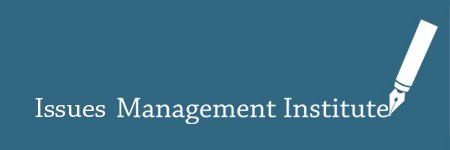Conjectures: A continued Story
Every week a ‘conjecture’ is published, a serial-blog-book. A serial, continued story, because it will appear for a year. With some frequency and you as a reader. A blog because it appears in that somewhat familiar format. A book, because at the end it will be clear that the work is not a loose collection of columns, but a real book, full of Ideas and Conjectures. It will eventually become an e-book to be presented to enthusiastic followers. A ‘conjecture’ that hopefully will bring you to thinking about reflection on your work, or to dwell on the concentration and impact of your company on society: how many people know you spontaneously, or consider the way you conduct your work impeccable or value your integrity . When, during the weeks to come, you encounter a Conjecture that you find especially attractive or that you would like to see executed in your organization: please let us know and we’ll take care of it. That’s the business of the Issues Management Institute: all Conjectures are based on theory, research, current events & experience from our firm. But first: the book in bits and pieces.
Guiding in the book is ‘We believe that we know, we don’t know that we believe’. That theme will be discussed in many different ways and angels. It’s my translation of a much older observation, that I simultaneously put in for discussion and for those of you who are interested, explain or build into policy: “An intriguing precursor appeared in a popular 1684 work of apologetics titled: “Traité de la Vérité de la Religion Chrétienne” by Jacques Abbadie who was a French Protestant based in Germany, England, and Ireland. The following passage appeared in chapter II:
… ont pû tromper quelques hommes, ou les tromper tous dans certains lieux & en certains tems, mais non pas tous les hommes, dans tous les lieux & dans tous les siécles.”
That is: according to the Quote Investigator. The sentence is attributed to Abraham Lincoln, some 200 years later (1809-1865). It then reads: “You can fool all the people some of the time, and some of the people all the time, but you cannot fool all the people all the time.” We’ll explore if this can somehow be substantiated. Or not.


Hoi, laat ik eens beginnen met de overwegingen te lezen. Mocht ik de behoefte voelen te reageren zal ik dit doen.
Ken je klassiekers, ik maar denken dat het Bob Marley was die deze quote van Lincoln verzonnen had. Mooi is die desondanks.
Geestig is dat, hè! Maar van mij mag je, hoor! Tenslotte had Marley het op zich ook eigenstandig (nog een keertje) kunnen verzinnen. En Lincoln zal wel gedacht hebben (hinein interpretieren is ook een vak): “Beter goed gejat dan slecht verzonnen.” Dat neemt niet weg dat ik echt denk dat dit de kracht van ‘geloof’ ontkent. En geloof heeft geen feiten nodig…
Ze zeggen wel eens: hoe meer je weet hoe meer je ervan overtuigd bent dat je weinig weet. Er is zo’n hoop te weten. Toch is het gebruik aan kennis voor de meeste mensen geen beletsel om ergens over te oordelen. En om dat oordeel vervolgens van de daken te schreeuwen. Mogelijkheden genoeg. Het liefst een duidelijk oordeel gebaseerd op basis van feiten. Het mooie aan de overwegingen van Eliane vind ik dat je weer eens gaat nadenken over feit, fictie en framing. Want daar zijn we goed beschouwd de hele dag mee bezig. Leuk om te lezen.